Librarian and Poet Sharon Black Looks Back on Her Career at Penn
After 40 years at Annenberg, Black is retiring later this month.
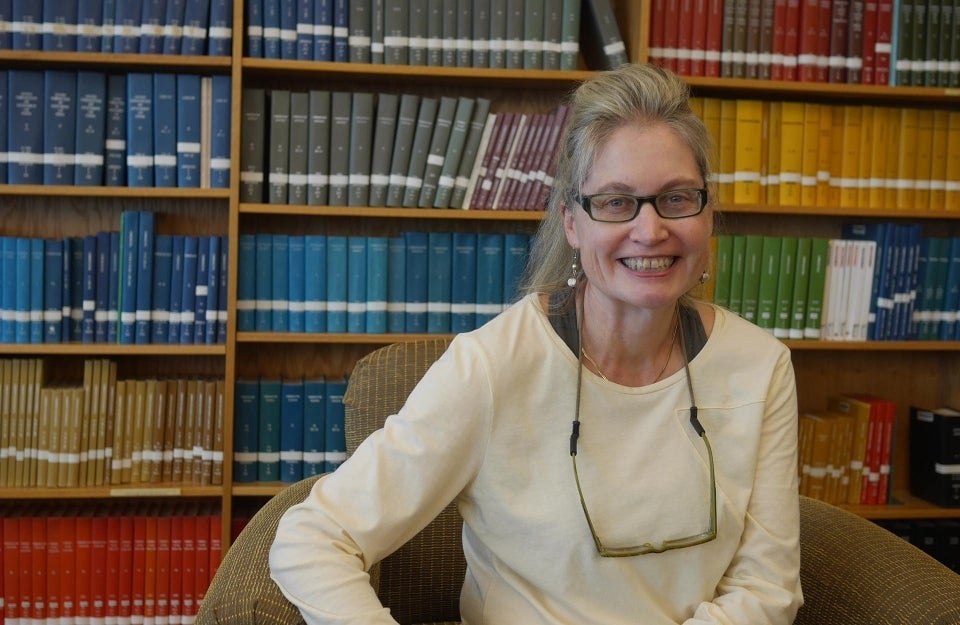
In 1980, Sharon Black was working towards her Master’s in Library and Information Science at Drexel University while dating a “wild-haired” drama graduate student at Temple. “We both loved theater,” she recalls — so when she saw a position for a part-time desk clerk at the Annenberg Library, she applied.
“I thought, ‘What would be cooler than a job in a theater library?’” Black presumed she’d be interviewing at the Annenberg Performing Arts Center, when in fact the position was with the Annenberg School for Communication.
“In my defense, the field of communications wasn’t as well-known in those days, and I was new to the area,” Black explains, “though I could have done more pre-interview homework. We weren’t as prepared back then.”
In the end, Black was hired for the job. From part-time desk clerk she was promoted to Acting Assistant Librarian. She then went on to become the archivist for a world-class television script collection, and later moved into a position indexing presidential campaign speeches for then-Annenberg Dean Kathleen Hall Jamieson.
Now, forty years after that first fortuitous mistake, Black is preparing to retire as Head of the Annenberg Library.
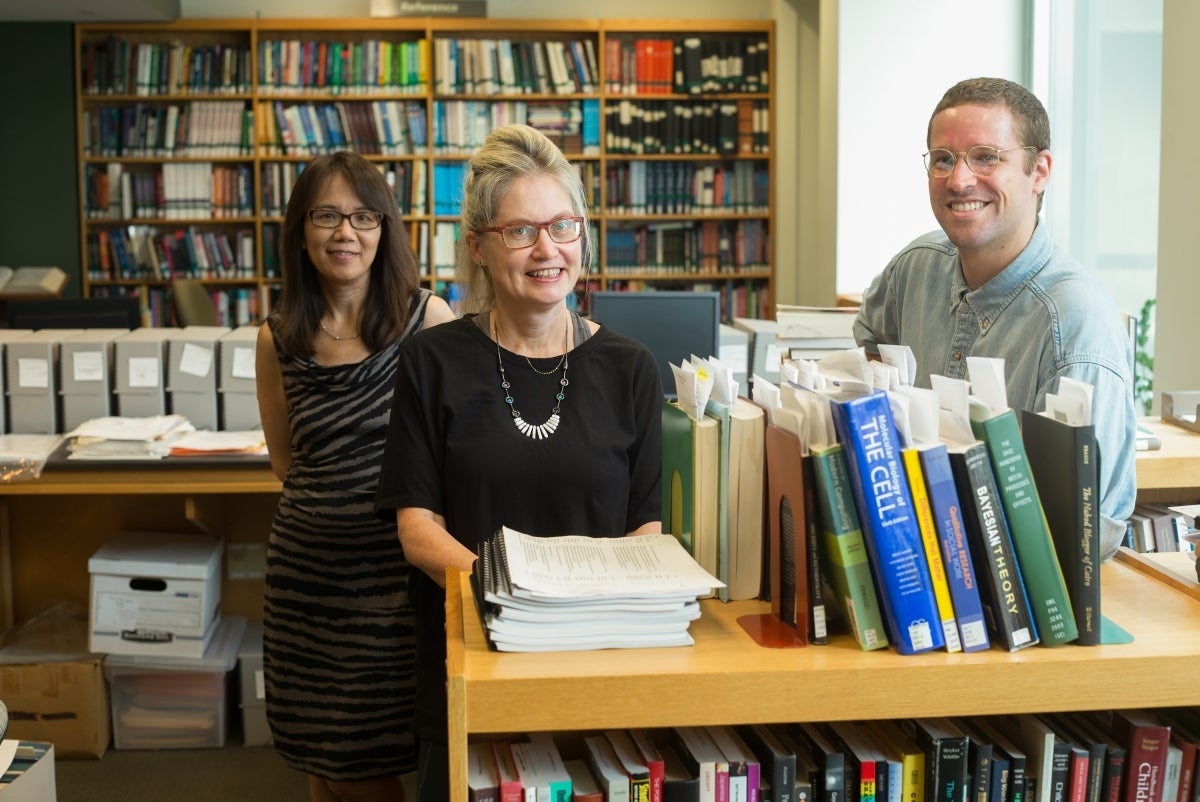
“Sharon’s leadership over the last four decades has grown our archives tremendously, has enabled us to gather research produced by a diversity of scholarly voices and — even as she prepares to leave us — has taken the lead in transforming our library into a ‘media library,’ linking scholarly materials with IT and multimedia resources,” says John L. Jackson, Jr., Walter H. Annenberg Dean of the Annenberg School for Communication and Richard Perry University Professor. “Her innovative and engaged approach to librarianship exemplifies what scholarship in the twenty-first century looks like.”
When pressed for a departmental achievement she’s particularly proud of, Black points to the robust collection of Annenberg faculty papers in ScholarlyCommons — Penn’s open-access digital repository — and the resultant download activity around the world, which can be tracked in a real-time map featured on the Annenberg Library homepage.
We recently spoke with Black about librarianship, poetic practice, her career at Penn, and her plans for retirement.
What’s the most significant change you’ve witnessed in your time at Penn?
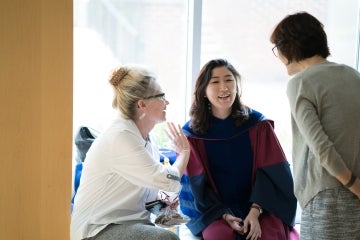
Where to begin . . . Just the physical footprint of the University since the ‘80s. I’ll put it this way: there used to be a field across the street from Van Pelt-Dietrich Library Center.
And, of course, I’m from the card catalog era. I miss those little drawers, but when online public access catalogs came along, I never looked back. I always defend virtual browsing as being just as magically serendipitous as browsing the stacks, an activity I also defend to those who never leave their offices for library materials. I like to play contrarian on the subject of virtual versus physical browsing.
Another change, and it’s not exclusive to Penn at all, is the increased pressure on students for shiny resumes from the get-go. It’s great for students to be a part of the scholarly dialogue, to publish early and often, to get that internship, but there should be time for absorption and incubation, too — for getting off-track. Room for that should be built into the educational experience and I’ve seen that space shrink. I worry about that, and how it may relate to mental health and also scholarship itself.
What hasn’t changed about librarianship?
Helping people find things is still the core of what we do, whether you’re a metadata specialist or managing stack attendants.
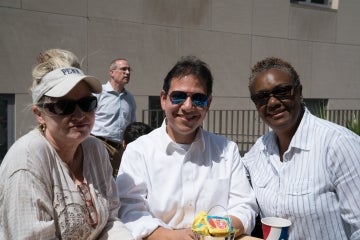
As a reference librarian, there’s nothing more satisfying than having a student come to your office with a research topic that they’re stoked about, but hanging over them is this nagging fear they won’t be able to find enough material to make their case or build their argument. You show them all the database options, how to play with searches, the process of revising them as they go along which helps them think deeper about the questions they are asking in the first place and you see it dawn on them that not only is there a lot of material on their topic, but that it’s easy, even fun, to gather.
Their relief is palpable — I never miss noticing it for my own satisfaction. They’re gathering their stuff to leave and you can tell they can’t wait to continue searching on their own. That’s our goal, getting students to need librarians and then not need them. We’re not trying to build dependency. We don’t mind if they come back, though!
But the will to serve is even broader than that, it’s not just about helping people find things. Librarians just want to help, period. Sometimes it’s as simple as propping open a door to let fresh air into a stuffy reading room, or having tea bags on hand near the water station.
You’re a published poet. What intersections (if any) exist between your librarianship and your creative work?
I’m a compartmentalizer, so not many. The two aren’t “worlds colliding” for me, though. I’ve met other poets in libraries on both sides of the reference desk. And I certainly have access to a lot of materials working at a library that houses a world-class poetry collection. For a while, I ran an experimental poetry group using a room right next to the Annenberg Library.
What advice can you offer for maintaining a creative practice while working in another field?
Stop making excuses about being too busy for creative time. Never wait for inspiration to make time for your craft, whatever it is; you “get lucky” when you’re working. It’s as simple as that.
When you lose faith in that process — and we all do — spend time editing, because your work always needs that. I’m reminded of the Paul Valéry quote, “A poem is never finished, only abandoned.”
Some you do have to push off a cliff, though. But there are those awful poems that you manage to edit into decency. It takes a lifetime to learn which are which.
COVID turmoil notwithstanding, what are your plans for retirement?
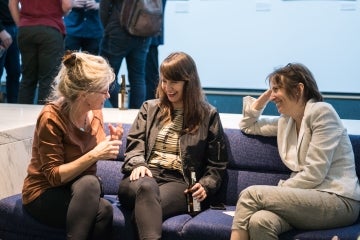
Get better at crossword puzzles and at identifying trees. In the broadest sense, I want to relax but also live more deliberately — slow down but be paying very close attention. My husband and I like to spend time in the Saranac Lake area of the Adirondacks, and I’m really looking forward to not having to rush down for a semester start.
And, of course, writing. I’ve already been writing poems about retirement, the way I was writing about old women in the first person in my twenties; one of my first published poems was The Old Woman.
I’ll continue to volunteer with Thresholds of Delaware County, a group that teaches inmates decision skills. And, after reading Susan Orlean’s The Library Book, I think I may need to volunteer at a public library — one or two shifts a week. I’ve never worked in a public library and I think that might be the church experience I’ve been missing.
As you leave Penn after forty years, what will you miss most?
Colleagues, both at Annenberg and in the Libraries. There are so many wonderful librarians, past and present, throughout the Libraries, including real giants in the field — people I didn’t even work that much with, but, passing them in the hall, your neck goes all the way back: Mike Halperin, the former head of Lippincott who’s now retired; Laurie Allen, who’s now at the Library of Congress. Our current Social Science Bibliographer, Lauris Olson, is also in that category.
I’ll miss my commute — I already do because of COVID — and walking past the Furness Building to and from the train station. I just love that building. You can sort of hug it because of its curvature. Yes, I’ve tried.



